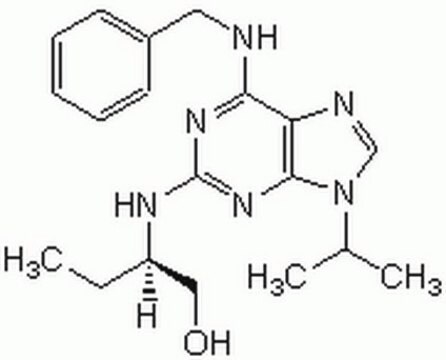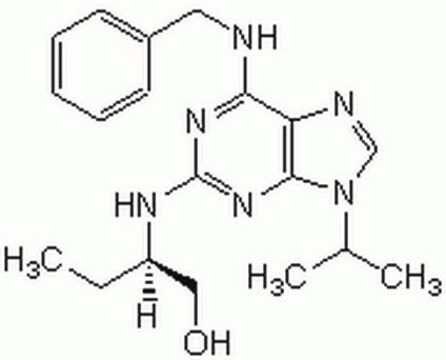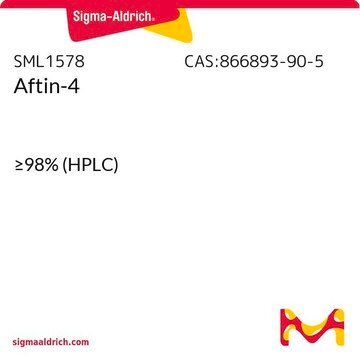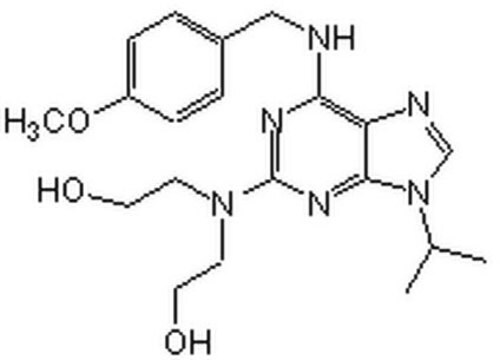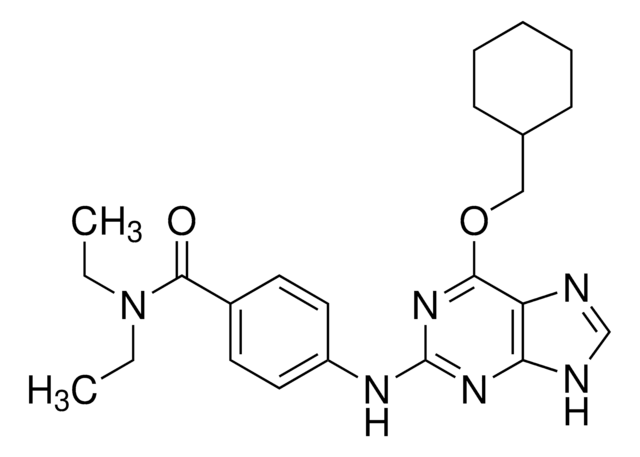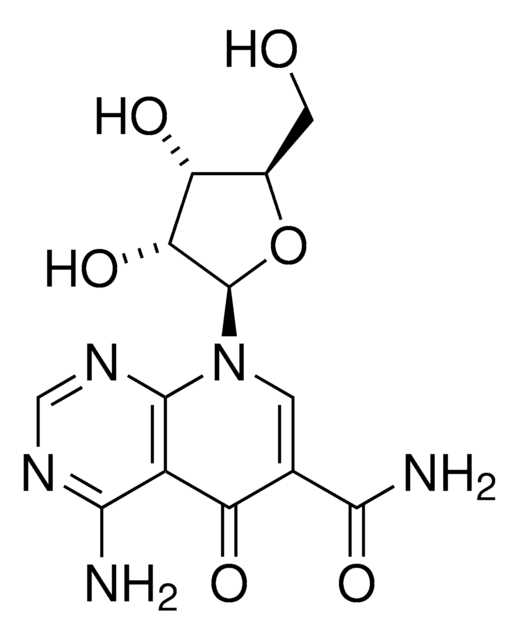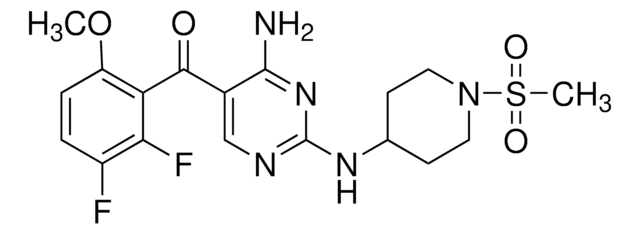R7772
Roscovitine
≥98% (TLC)
Sinónimos:
2-(R)-[[9-(1-Methylethyl)-6-[(phenylmethyl)amino]-9H-purin-2-yl]amino]-1-butanol, 6-(Benzylamino)-2(R)-[[1-(hydroxymethyl)propyl]amino]-9-isopropylpurine
About This Item
Productos recomendados
biological source
synthetic (organic)
assay
≥98% (TLC)
form
powder
mp
106-107 °C
solubility
chloroform: 50 mg/mL, clear, colorless to light yellow
storage temp.
−20°C
SMILES string
CC[C@H](CO)Nc1nc(NCc2ccccc2)c3ncn(C(C)C)c3n1
InChI
1S/C19H26N6O/c1-4-15(11-26)22-19-23-17(20-10-14-8-6-5-7-9-14)16-18(24-19)25(12-21-16)13(2)3/h5-9,12-13,15,26H,4,10-11H2,1-3H3,(H2,20,22,23,24)/t15-/m1/s1
InChI key
BTIHMVBBUGXLCJ-OAHLLOKOSA-N
Gene Information
human ... CDK1(983) , CDK2(1017) , CDK5(1020) , CDK7(1022) , CDK9(1025) , CDKN1A(1026) , CDKN1B(1027) , CDKN1C(1028) , CDKN2A(1029) , CDKN2B(1030) , CDKN2C(1031) , CDKN2D(1032) , CDKN3(1033)
mouse ... CDK1(12534)
rat ... CDK1(54237)
¿Está buscando productos similares? Visita Guía de comparación de productos
Application
- an inhibitor of p34cdc2/cyclin B kinase to preculture porcine oocytes
- as a supplement in TCM199 medium for in vitro prematuration of cumulus-oocyte complexes (COCs) of adult goats
- in astrocyte conditioned media as an inhibitor of cyclin-dependent kinase 5 (CDK5)
- as a CDK2 inhibitor in culture media to treat hESCs
Biochem/physiol Actions
Features and Benefits
Legal Information
Storage Class
11 - Combustible Solids
wgk_germany
WGK 3
flash_point_f
Not applicable
flash_point_c
Not applicable
ppe
Eyeshields, Gloves, type N95 (US)
Certificados de análisis (COA)
Busque Certificados de análisis (COA) introduciendo el número de lote del producto. Los números de lote se encuentran en la etiqueta del producto después de las palabras «Lot» o «Batch»
¿Ya tiene este producto?
Encuentre la documentación para los productos que ha comprado recientemente en la Biblioteca de documentos.
Los clientes también vieron
Artículos
Cell cycle phases (G1, S, G2, M) regulate cell growth, DNA replication, and division in proliferating cells.
Cell cycle phases (G1, S, G2, M) regulate cell growth, DNA replication, and division in proliferating cells.
Cell cycle phases (G1, S, G2, M) regulate cell growth, DNA replication, and division in proliferating cells.
Cell cycle phases (G1, S, G2, M) regulate cell growth, DNA replication, and division in proliferating cells.
Nuestro equipo de científicos tiene experiencia en todas las áreas de investigación: Ciencias de la vida, Ciencia de los materiales, Síntesis química, Cromatografía, Analítica y muchas otras.
Póngase en contacto con el Servicio técnico